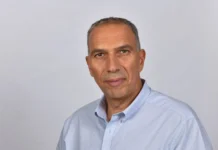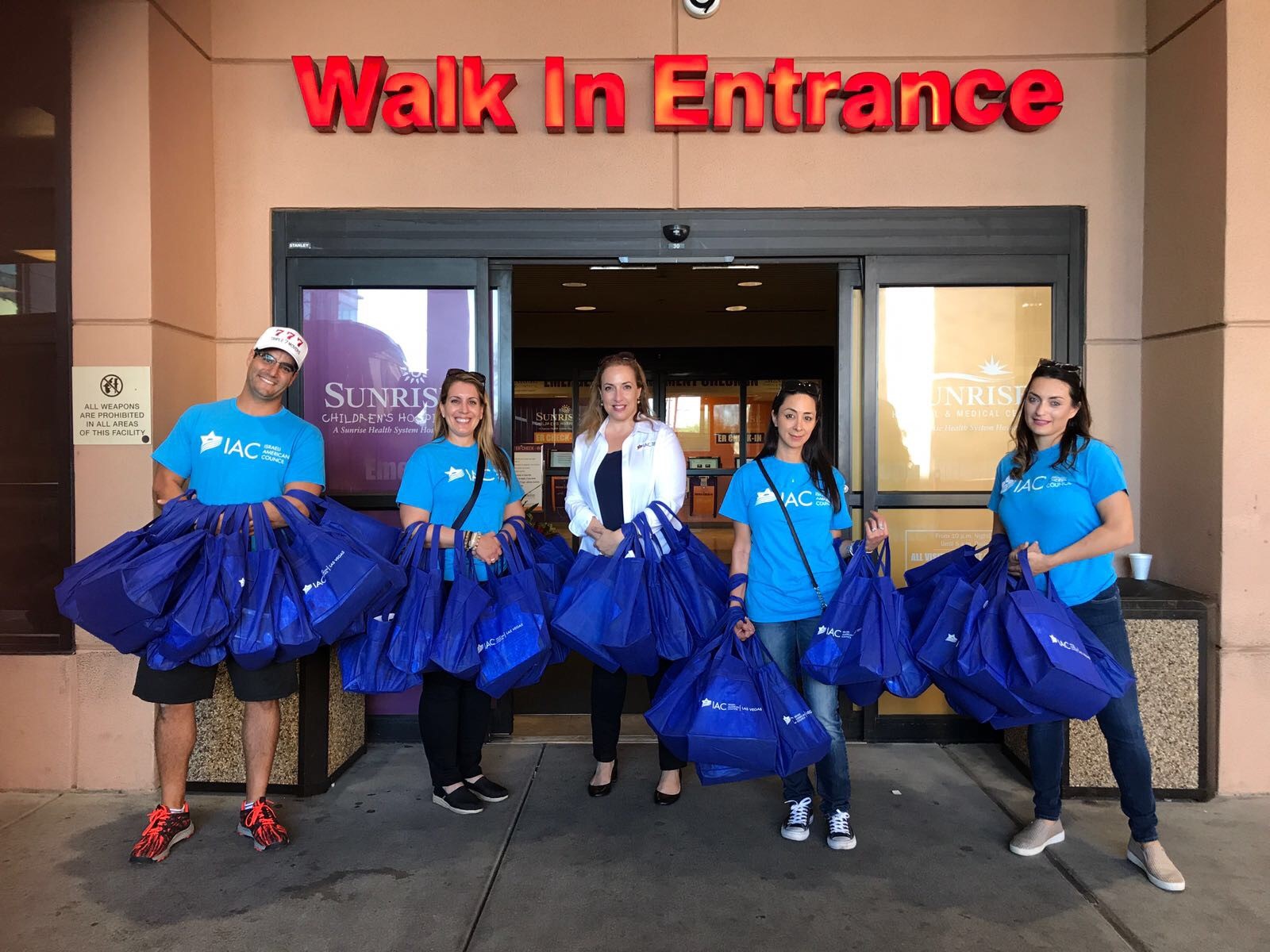Numerous scientific studies have demonstrated that one of the keys to a happy and fulfilled life is access to a community. For hundreds of thousands of Israeli-Americans, the Israeli-American Council (IAC) is that vital pillar of support, providing members from coast to coast with a network of friends and colleagues who share their culture, speak their language and hold their values. We are a vibrant community that didn’t exist just a few years ago, filling a gap for Israeli-Americans who had lived isolated from one another and disengaged from the broader Jewish community.
Yet from its inception, the IAC has been more than a social club. Our mission has always been to move our engaged community to action, turning it into a resource for the broader Jewish community in America and for the U.S.-Israel relationship.
We see that vision coming to life through the IAC Gvanimcommunity-leadership program, which is empowering Israeli-Americans with the tools, knowledge and confidence to become drivers of change for the Jewish people.
The 400 Israeli-Americans who have graduated the program since 2014 have come to understand that they are part of the continuation of a long chain of Diaspora Jewry. Their role today is distinct from prior roles of Jews in the Diaspora; their ability to make a difference in the American-Jewish community lies within their Israeli DNA.
IAC Gvanim identifies Israeli-Americans in local communities who are currently leaders or have the potential to lead, and encourages them to apply for the program. Participants embark on a journey to explore their Jewish roots and Israeli-American identity, as well as the landscape of their communities.
The IAC Gvanim curriculum includes 10 three-hour meetings and two full-day sessions that feature leadership workshops, visits with Jewish institutions, meetings with Jewish and Israeli leaders, webinars and more. The workshops cover practical tools for leadership, such as project management; design thinking; adaptive leadership; community building; fundraising; public speaking; Jewish text, heritage and identity; what it means to be an Israeli-American; and how to make Israel come alive for the next generation.
As current and former IAC regional directors in Las Vegas, New Jersey and Boston, we have come to intimately understand the transformative power of IAC Gvanim for the Israeli American and American Jewish communities both in the present and for future generations. Below are some insights from each of our communities.
Las Vegas
In the wake of the October 2017 Route 91 Harvest music-festival shooting in Las Vegas—the most horrific mass shooting in modern U.S. history—IAC Gvanim graduates immediately put their “Israeliness” into action.
Israelis are used to working under pressure and banding together in emergency situations. After the shooting, the Las Vegas Gvanim group arranged for care packages containing Israeli products to be sent to the nurses and caretakers who were working around the clock to assist victims.
Later that year, when a father in the Jewish community tragically lost his life, a group of IAC Gvanim leaders who spearheaded the local IAC Care division came together to create a city-wide campaign, raising $50,000 to support his wife and four children.
In June 2018, after Argentina cancelled a friendly exhibition match in Jerusalem between the Israeli and Argentinian national soccer teams in response to pressure from anti-Israel groups, IAC Gvanim’s Las Vegas alums responded with a showing of unity and friendship by leading the Israeli-American, Argentinian-American and broader communities in a friendly soccer game.
IAC Gvanim’s Las Vegas graduates create distinct programs for the community by the community. They bring an Israeli-American flavor and mentality to the table that indelibly benefits the local Jewish and general communities, helping them unite in new and creative ways.
New Jersey
In New Jersey, IAC Cinematec, which introduces Israeli films, filmmakers and daily life in Israel to the U.S. public, has been a transformative initiative to promote social interaction and connection between American Jews and Israeli-Americans. In Washington Township, at a screening of a documentary about Israel’s first Prime Minister David Ben-Gurion, an Israeli-American parent (and Gvanim graduate) eagerly shared photos of one of her relatives with Ben-Gurion.
Another graduate, who is a visual artist, collaborated with IAC staff to create a six-session workshop for teenagers titled Photo Voice. In this workshop series, teens were introduced to various methods of expression through art. The project culminated in a photography exhibit, where teens presented photos that included elements of Jewish identity and linkage to Israel.
During the Sukkot holiday, IAC Gvanim’s New Jersey graduates paved the way for a tradition of opening their sukkahs to others throughout the community, Israelis and Americans alike, cultivating a heightened sense of Jewish unity in the region.
IAC Gvanim graduates have been instrumental in the local Israeli Memorial Day ceremony, the ACT.IL media room, the Celebrate Israel festival and the programmatic ecosystem of the IAC New Jersey chapter.
Boston
A natural leader wants to affect change, but may not necessarily know how to lead—or more importantly, why leadership is necessary. For the Jewish community, the “why” is the next generation. Israeli-Americans have a unique hybrid identity that did not previously exist, and understanding how to harness the power of that identity is a key to effective leadership.
To date, Boston’s Gvanim alums have produced 14 different community initiatives. The IAC provides them with the funding, administrative support and marketing tools to bolster their programs, but the vision is theirs.
They reimagined a national program, IAC Shishi Israeli, from a celebration of Jewish traditions and Israeli culture at a synagogue just a few times a year to a twice-a-month community-building event featuring singing, d’var Torahs about Israel, Kiddush and other Shabbat customs.
They launched the Boston Israel Academic Forum, a space for meaningful discourse, knowledge-sharing and idea-spreading between Jewish and Israeli professors at various universities, including through TED-style talks.
IAC Gvanim leaders envisioned and launched a vibrant leadership program for young professionals, providing them with mentorship, guidance and support. They also opened a weekly Beit Midrash communal Torah study—a project coming up on its third year that provides a forum for scholars to learn together. And they pioneered IAC Care, a network of passionate volunteers with the mission of tending to the welfare needs of the community.
From Boston to New Jersey to Las Vegas, our common experience makes it clear that Israeli-Americans have a powerful desire and capacity draw on their “Israeliness” to become leaders. Unleashing the vast potential of our community can benefit American Jewry more broadly, close the gaps between the United States and Israel and help to secure our common future.
Noa Peri-Jensch is the Israeli-American Council (IAC) Regional Director in Las Vegas; Lital Carmel is the IAC Regional Director in Boston; and Aya Shechter is the IAC’s former Regional Director in New Jersey and currently its National Regional Offices Operations Director.


























